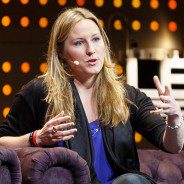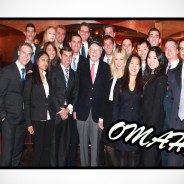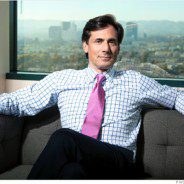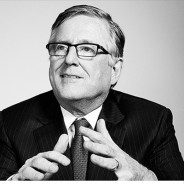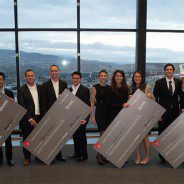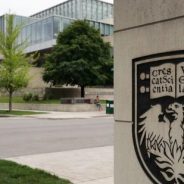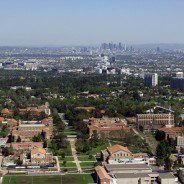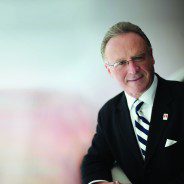Search results for return on investment:
Haas MBA Makes The San Francisco Business Times 40-Under-40 List
The San Francisco Business Times released its third annual 40-under-40 award winners—a compilation of young CEOs, entrepreneurs and top executives making a difference in the local business community. UC Berkeley Haas School of Business had four alumni made the list, including one Haas MBA.
Danae Ringelmann, MBA 08, is the co-founder and chief customer officer of Indiegogo, the world’s largest global crowd funding platform. Continue reading…
Two GGU Professors Contribute to Investor Behavior Book
Two Golden Gate University professors, Dave Yeske and Elissa Buie were part of a slew of respected academics who contributed to the book “Investor Behavior: The Psychology of Financial Planning and Investing.” The book sets forth to answer the question of why investors behave as they do. Edited by H. Kent Baker and Victor Ricciardi, “Investing Behavior” was published by Wiley Finance.
In 30-chapters, the book covers the bases of investor psychology and describes how personality, emotions, financial planning strategies and the behavioral underpinnings of various trading and investment topics help explain how clients make decisions. Continue reading…
Anderson Students Travel to Omaha, Meet Warren Buffet
Last month, 20 UCLA AndersonSchool of Management students, members of the Anderson Student Asset Management Fund, Student Investment Fund and the Anderson Investment Association journeyed to Omaha, Nebraska to meet Warren Buffett.
The Anderson crew, students from six other American universities and a group of Brazilian business students met Mr. Buffet at the Berkshire Hathaway’s headquarters tucked away on the 15th floor of the Keiwit Building. Continue reading…
Faculty Recognized and Romick Speaks at Anderson Investing Conference
The UCLA Anderson School of Management hosted the 3rd Annual UCLA Anderson Investing Conference on Feb. 7, 2014, taking over Korn Convocation Hall today for a day-long look into the state of investing and global economics.
Topics touched throughout the conference included “Behavioral Finance in the Digital Age,” “Equity Investing: Uncovering Opportunities in Bull Markets,” “Global Credit: Navigating Uncertain Waters” and “US Real Estate: From Boom, To Bust, To Rebound, To.” Continue reading…
Case Foundation Grants $100,000 to Georgetown Global Social Enterprise Initiative
Georgetown University’s McDonough School of Business’ Global Social Enterprise Initiative announced a new grant from the Case Foundation to support a variety of impact investing initiatives. This bump in funding is part of a new relationship between the GSEI and the Case Foundation and Jean Case, CEO of the foundation, will be serving as Executive in Residence for the 2013-14 school year.
Register Now: Anderson Dean’s Distinguished Speaker Series Presents David Booth
The UCLA Anderson School of Management is proud to present David Booth as the next speaker in the Dean’s Distinguished Speaker Series. David Booth was a founder of Dimensional Fund Advisors in 1981 and is Chairman and CEO.
Chicago MBAs may recognize Booth’s name— The University of Chicago Booth School of Business was named in honor of David, where he also serves as a lifetime member of the school’s business advisory council. Booth has written many pieces including “Diversification Returns and Asset Management” with Eugene F. Fama, which won a Graham and Dodd Award of Excellence from the Financial Analysts Journal in 1992.
Rutgers Professor Featured In Reuters
John Longo, a Professor of Finance at Rutgers Business School Newark/New Brunswick, was recently interviewed by Reuters for an article about a new mutual fund. Gottex Fund Management, a hedge fund firm, has launched a mutual fund that will open asset classes for retail clients that have been previously reserved for millionaires. The Gottex Endowment Strategy Fund will include hedge funds, real estate, and private equity.
Professor Longo provided some advice for consumers who might be interested in investing in the Gottex Fund. Longo observed “Investing in hedge funds makes sense now, but it is also important to compare prices.”
The new fund seeks to meet investors’ demand for portfolios that are less correlated to the broader markets. The senior managing director of Gottex and the chief investment officer of the Gottex Endowment Strategy Fund, William Landes, claimed that the fund will be modeled after endowments with average annual returns of 12.9 percent over the past 20 years, a higher rate of return than the 8 percent average annual return that stocks-and-bond portfolios provided over the same period. Landes stated “this will allow investors to get access to a wide range of markets, trading strategies, and alternative investments in a controlled environment.”
Mutual funds like the Gottex fund have become more popular in recent years. Golman Sachs researchers claim that there are approximately 400 of these liquid alternatives funds on the market. A recent Goldman study suggested that investors may invest as much as $2 trillion dollars into liquid alternatives funds over the next five to ten years.
Winning: Three Kellogg Teams Place at Adobe Digital Analytics Competition
The following article was originally sourced from Big Data, Big Win, an article on Kellogg’s News & Events page.
Kellogg School of Management students competed in a national competition to build a digital strategy for Wired.com. At the contest’s end, Kellogg teams took three of the top four spots, including first place.
More than 90 teams from 11 different universities submitted presentations to the Adobe Digital Analytics Competition, which was hosted by Adobe and Condé Nast and held in Utah from November 15-17.
Executive MBA
Chicago Booth Executive MBA Program Structure
The University of Chicago Executive MBA at the Booth School of Business has campuses in Chicago, London, and Hong Kong. The program begins in June and runs for 21 months, spanning seven academic quarters. The program begins annually in August.
During the first quarter, Chicago Booth Executive MBA students begin at their home campus in Chicago, London, or Hong Kong with a joint session for incoming students. Quarters two through five cover the core curriculum at that home campus. Between quarters five and six a two-week elective session for all students takes place in Chicago during which students complete between two and four of their elective courses. Students then return to their home campus for quarters six and seven where they finish the core curriculum. Final convocation for all students takes place in Chicago following quarter seven.
Curriculum
During the 21-month Chicago Booth Executive MBA program students take foundational and fundamental courses as well as electives and complete a capstone experience. Students also select from four elective courses to complete their individual course of study.
The preset general management curriculum is designed to improve students’ grounding in fundamental business disciplines like the economics of human relations, the financial business case, writing skills, brand strategy, and negotiation techniques. This curriculum, for example, comprises of:
Foundations – Financial Accounting, Microeconomics, and Statistics courses
Functions – Finance, Marketing, and Operations courses
Management – Decisions, People and Strategy courses
Business Environment – Global Strategy and Economics and Macroeconomics courses
In the electives component of the Executive MBA, students have the opportunity to explore personal career interests more thoroughly. The two-week elective block in the second year of the program allows students to complete between two and four intensive courses on advanced topics such as Entrepreneurial Finance, Investments, Marketing Strategy Simulation, New Product Development, and Applied Game Theory. Some of these courses are organized into tracks, which provide an additional framework to orient study by developing clusters of elective courses in a particular field of interest: capital markets, corporate finance, entrepreneurship, marketing, strategy, or leadership and management. Tracks are not required, however, and students are also allowed to take electives from a range of different subject matters.
Students may choose one of two Capstone offerings. For example, the Integrated Strategic Management Capstone Simulation allows student teams to operate in a market environment. Students will make financing, investment, pricing, production, channel and marketing decisions culminating in final presentations to a panel of judges. This panel values each student company based on accumulated cash flow and future profit potential, which are determined through historical data modeling and statistical analysis.
The second option is the Global New Venture Challenge. This is a course in which teams of students develop an innovative business and business plan and pitch it to peers, faculty, and outside experts in a final all-day presentation format.
Executive MBA Rankings
- U.S. News & World Report: 1
- The Economist: 6
- Financial Times: 7
Class Profile
There were 224 students in the most recent Chicago Booth Executive MBA class, 112 of whom have advanced degrees. Females make up about 26% percent of the student body. There are students from 48 different nationalities in the current student body. The average student age is 37 and the average number of years of work experience is 13. In addition, the average GMAT score is 681 with the average Executive Assessment score being 155.
Careers for Chicago Booth Executive MBA Graduates
Employment reports on previous Booth graduate hiring trends, employers, industries, and functions are available for each of the past five years. An extensive archive of previously successful resumes is available and career newsletters are constantly circulated via email to keep students apprised of up-to-date job postings and career management tactics. The Fisher Career Resources Center (CRC), located in the Gleacher Center, gives students, and alumni an additional researching resource.
Tuition, Scholarships, and Financial Aid
The University of Chicago Booth School of Business Executive MBA program tuition is as follows:
- North America – $194,000 USD
- Asia – HKD 1,355,000 ($172,812 USD)
- Europe – $167,000 USD
Tuition and fees include the price of all academic sessions, course materials, access to teaching assistants, most meals, daily snacks, and specific student activities. For Chicago students the price also includes lodging for the residential weeks in Chicago (two sessions) and in London and Hong Kong (one session each). Hong Kong and London campus students are also responsible for covering the cost of lodging away from their home campus.
Admissions
Each location handles their own admissions processes so the notification timeframe may differ slightly, but generally speaking, applicants can expect to hear via email or mail somewhere between four and six weeks after applying for one of the four admissions deadlines.
To complete an application for Booth’s Executive MBA program, prospective students must submit a completed online application with personal background information, complete a series of varying essay questions (between one and three 1 to 2-page essays may be necessary), a professional resume, two letters of recommendation, transcripts from all post-secondary educational institutions attended, official GMAT or GRE scores (unless granted a waiver*), and a $175 application fee.
*In certain instances, senior-level managers with more than twelve years of management experience or candidates who possess an advanced degree in a quantitative field may be granted an exception from the GMAT/GRE requirements. Candidates who believe they fulfill one of these criteria should speak with an admissions representative about obtaining a testing waiver.
Admissions staff, students, and alumni from the Chicago campus evaluate applications and conduct interviews. The school will additionally grant interviews on an invitation-only basis.
The program requires a high level of English proficiency. The school will assess each candidate’s English ability during the application and interview process. In certain cases, based on these results, applicants will be asked to take the TOEFL exam.
Students must also provide a letter of company support after admission to certify that their company will allow them to attend all class meetings. The letter does not, however, need to provide details of financial support.
2022 Chicago Booth Executive MBA Deadlines
| Round | Submission Deadline |
|---|---|
| First Deadline | November 29, 2021 |
| Second Deadline | February 14, 2022 |
| Third Deadline | April 4, 2022 |
| Final Deadline | June 6, 2022 |
STATS
Cost:
- North America – $194,000 USD
- Asia – HKD 1,355,000 ($172,812 USD)
- Europe – $167,000 USD
Length of Program: 21 Months
COVID Response: “For our Hyde Park and Gleacher campuses, only Illinois residents will be permitted. Only Hong Kong residents are able to access the Yuen Campus. For our London campus at St. Paul’s, only residents of the greater London region are permitted.
Female Student Body: 26%
Work Experience Average: 13 Years
Graduate Program Offerings: Chicago Booth offers two part-time MBA programs, a full-time MBA program, EMBA as well as prestigious PhD and executive education program options.
UCLA Anderson Hosts Star Alumni Bill Gross and Larry Fink Talk
UCLA Anderson alumni Bill Gross, founder and co-chief investment officer of PIMCO, and Larry Fink, chairman and chief executive of BlackRock Inc., discussed national and international issues at an Anderson event at the Beverly Hilton Hotel in Beverly Hills, CA, on October 3, 2013. Over the course of the exclusive hour-long event moderated by CNBC’s Brian Sullivan, Gross and Fink touched on global economic and financial markets, the nation’s education crisis, and the demands of future economics.
Gross co-founded Pacific Investment Management Company (PIMCO) and currently manages its Total Return fund, the world’s largest mutual fund and is responsible for nearly $2 trillion worldwide. According to Gross, he continues to apply many of the principles on spreading risk and calculating odds he learned as a blackjack pro to his investment decisions. Continue reading…
Direct from the Dean: M. Moshe Porat of Temple’s Fox School of Business
When Dr. M. Moshe Porat became dean of Temple University’s Fox School of Business 17 years ago, the school was regarded as a good, local commuter school. In a recent Q&A with MetroMBA, Porat shared that today Fox is well on its way to being known as one of the best public-urban business schools in the country. Continue reading…
Lerner MBA Students Tapped to Solve Science Department’s Marketing Puzzle
University of Delaware’s Lerner College of Business and Economics reported last week on the results of an internal consultation that its MBA students were invited to provide to the university’s Department of Biological Sciences.
The Biological Sciences department was seeking a way to find the break-even point for a scientific core focusing on MicroCT and MRI technologies that provide real-time and minimally invasive information about brain functioning. These cores aim to enhance learning and attract research talent by providing students, faculty, and community members with access to state-of-the-art equipment, with which there are clearly some associated expenses. Department chair Randall Duncan put it as follows: “We’ve been scientists. We don’t know anything about business or else we would be business people.”
A select group of Lerner’s MBA students were invited to interview for a spot on a four-person consulting team that would develop a strategic and marketing plan to keep the department from losing money on this core. Through survey research methods, the team gathered information about usage patterns and user funding and developed a new incremental pricing system with discounts for frequent users and special off-hour pricing that would provide a return on the department’s investment. The MBA student consultants also offered guidance on ways to enhance awareness of the core on campus and in the community by creating a more user-friendly website and encouraging faculty and department chairs to distribute business cards to help students and researchers locate the site.
The team’s recommendations were accepted by the Department of Biological Sciences and will be presented to the Office of the Vice Provost later this summer. While consulting projects with real clients are often built into MBA course offerings, these MBA students were in the right place at the right time to take advantage of this unique additional opportunity and make a meaningful contribution to another UD department.

Fox Hosts Finance Experts Bob Rice and Jim Rickards
Temple University’s Fox School of Business hosted finance experts Bob Rice and Jim Rickards last month in an event attended by more than two hundred Fox graduate students and community members. Part of 1210AM The Big Money Show host Steve Cardasco’s Financial Literacy Series, the event covered alternative investment strategies that savvy investors might employ in response to changing social and market conditions.
Bob Rice, Alternative Investment Editor for Bloomberg Television and author of The Alternative Answer, pointed out that the traditional balance of 60% U.S. stocks and 40% U.S. bonds ignores historically low interest rates on bonds, as well as the amount of economic growth generated by privately held startups not accessible through stock market investment. Rice discussed the merits of building a diversified portfolio and outlined four portfolio goals—generating income, reducing risk, enhancing one’s income return for risk and purchasing power protection—that investors might adopt to advance their financial objectives.
Rice was then joined on stage by Jim Rickards, gold standard advocate and author of the bestselling Currency Wars: The Making of the Next Global Crisis. Rickards briefly defined currency war as a country’s strategy of deliberately lowering the value of its own currency to gain advantage over its training partners, and explained how inflation occurs as a result.
Fox students then had an opportunity to ask questions of these financial experts, from both academic and personal investing perspectives. Among the audience were members of the Temple University Investment Association, a student organization that manages a portion of the school’s endowment, one of whom sought input on modernizing the group’s investment approach. The guest speakers provided thoughtful and thorough responses to students’ questions, illustrating how extracurricular offerings like expert speakers can enhance the educational experience of an MBA.
Executive MBA
Boston University Executive MBA Program Structure
The 22-month-long EMBA class begins in August. The class spends almost the entire 22 months together as one cohort, which helps foster collaboration and a sense of community.
During the first year, students spend one full weekend on-campus class every three weeks. During the first three modules, virtual sessions happen on selected Tuesday evenings to help reinforce what they learn during their on-campus sessions. The first year of the program also includes four weeks of on-campus residence and an international field seminar.
During the second year, on-campus weekends get bumped up to one every two weeks. The increased number of in-person learning sessions helps students not just be more actively engaged with their coursework but also provides time to work on team-based capstone projects.
Curriculum
The Boston University Executive MBA begins with a one-week residency devoted to Leadership Challenges and Opportunities. This is followed by Module 1, “Comprehending the Environment” which covers topics including industry analysis, macroeconomics, leadership & collaboration, and marketing strategy, and lasts from November to February.
Module 2, “Understanding Organizations” begins in March and covers topics like HR structure, IT, financial & managerial accounting, and more. Following Module 2 is “Law and Ethics”, which takes place in June and July.
Module 3 starts in August and lasts through November. It is called “Creating Value in the Market” and includes topics like corporate investments, microeconomics, competitive strategy, and marketing.
In December, students focus on “Innovation and Design Thinking” And then begin Module 4, ”Entrepreneurship.” In the middle of this module, students embark on their 10-day International Field Seminar.
When students return from their IFS, they finish Module 4 and then complete their second and final residency week in June, centered around “Leading Change.”
Another element heavily emphasized in the EMBA curriculum is team learning. Through the Team Learning course, which runs the length of the EMBA program, students receive peer feedback and learn about leadership and decision-making. During the entrepreneurship segment of the last module, students bring these skills together to work in teams to create a new business.
Executive MBA Rankings
• The Economist: 46
Class Profile
In 2019, the average Boston University Executive MBA student has an average of 15 years of work experience and nine years of managerial experience. The class is split 36.2/63.8 percent female/male, and over 54 percent of the class occupied a senior-level position including CEO, Vice President or Director. The class also comprised a wide variety of industry backgrounds: 19 percent from finance, insurance, and real estate, 10 percent came from manufacturing, 6 percent from non-profit, 6 percent from marketing, and 38 percent came from healthcare or biotechnology fields. There are 47 current students in the program.
Tuition, Scholarships, and Financial Aid
For the Boston University Executive MBA, the total cost of the program is $115,000. A $5,000 deposit is due upon acceptance and is applied to the first semester’s tuition. The total program cost includes tuition, books and supplies, accommodation and meals, and other select events such as the international seminar. Students are expected to cover their own airfare when traveling abroad.
The admissions committee does offer a few select scholarships based on need and merit. Academic and professional achievements are considered as well as whether a student is self-financing his or her degree. To apply, applicants must include an additional essay in their application.
Admissions
To apply to the BU EMBA program, applicants must submit an online application form, the $125 application fee, two essays, business resume (include dates of work and educational experience), an organizational chart that illustrates your current position within your place of employment, letter of Organizational Support, a letter of introduction, two letters of recommendation and official university-level transcripts. Proper TOEFL, IELTS, or PTE test scores may be needed for non-native English speaking applicants as well. GMAT scores are not required.
After reviewing application materials, applicants are invited for a personal interview.
Application deadlines are as follows:
August Intake
October 17
January 2
March 18
May 1

